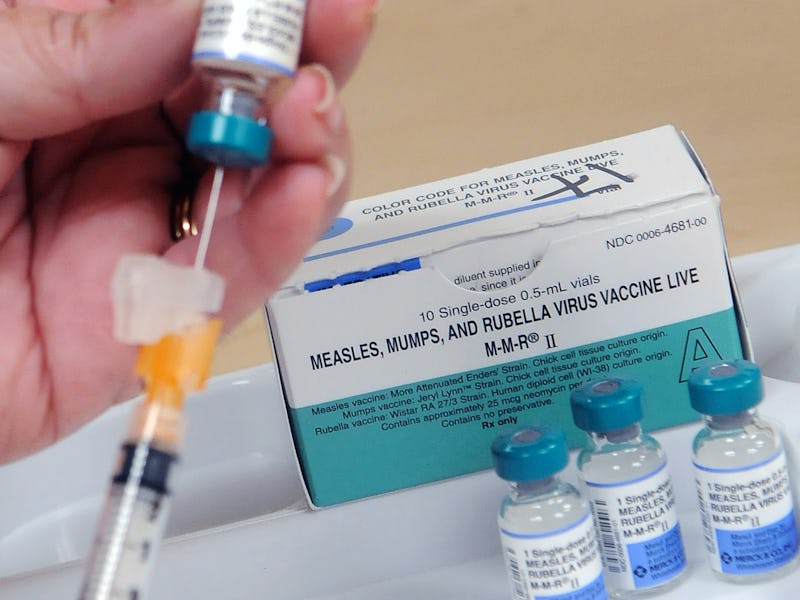How Contagious Is Measles? These Numbers Will Certainly Surprise You
Ninety-five percent coverage is needed to maintain herd immunity.

Despite being declared eliminated from the U.S. in 2000, measles is rearing its ugly head yet again. The last three months have seen a nearly meteoric rise, with the Centers for Disease Control and Prevention recording 64 cases across 17 states as of late last week.
The singular underlying cause for the spike is the decline in childhood measles vaccinations, which have dropped from 95 percent during the 2019 to 2020 school year to 93.1 percent for the 2022 to 2023 school year, according to a November 2023 CDC report. Ninety-five percent coverage is needed to maintain herd immunity and limit the spread of the infectious agent within the community.
Measles is a highly contagious respiratory disease caused by the measles virus, hailing from a family of similar infectious agents like the mumps virus, respiratory syncytial virus (or RSV), and parainfluenza viruses. Unlike many viruses that circulate in animals before jumping over to humans, measles has no animal reservoirs and is primarily transmitted from person to person.
But just how infectious is measles? The virus is transmitted through droplets coughed up or sneezed and can remain suspended in the air for at least one to two hours in a space previously occupied by an infectious person, making it particularly pernicious, infectious disease experts have told Inverse.
A measure used to estimate how contagious and transmissible an infectious disease is is called R0 (pronounced “R naught”). For measles, this is between 12 and 18, which means that for a single infected person, they can spread it to 12 to 18 other individuals, on average. To put it into perspective, influenza’s R0 is between roughly one to two and Covid-19’s is between 1.5 and 3.5. Smallpox, despite its frightful reputation, has an R0 between five and seven.
According to the CDC, nearly one to three children out of 1,000 infected with the virus will die from respiratory and neurologic complications. Prior to vaccination, 400 to 500 people died, 48,000 were hospitalized, and 1,000 suffered from encephalitis (or brain swelling) from measles among all cases reported annually.
Most current measles outbreaks this year were traced to international travel — where an unvaccinated or partially vaccinated individual catches measles and brings it back with them — and a majority were among children who hadn’t received their measles, mumps, and rubella (or MMR) shot.
It can’t be stressed enough that vaccination remains the only prevention and protection against measles. Once the virus infects you, there is no specific antiviral therapy available. In a statement released last week, the American Medical Association is urging folks to get vaccinated if they aren’t already immune. Not sure? We've got you covered with this handy guide organized by birth year.